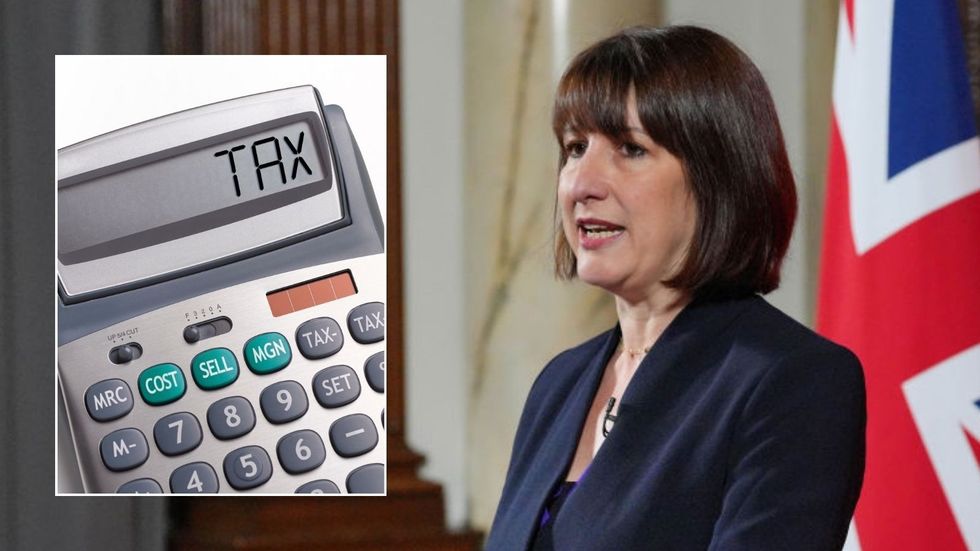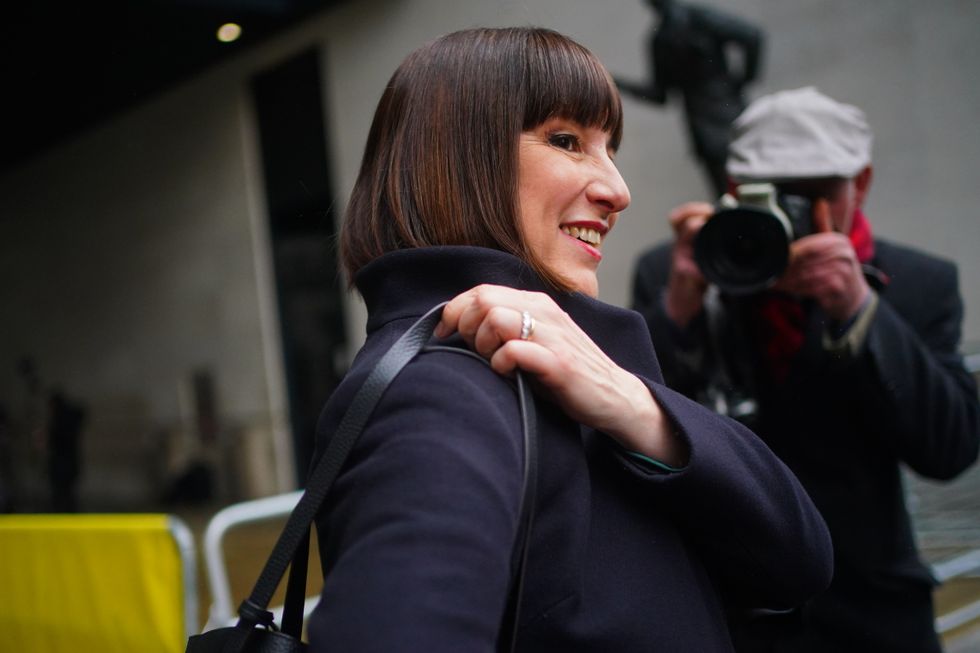Farmer Clive Bailye fears he may be forced to sell his farm …
GB NEWS
Chancellor Rachel Reeves confirmed National Insurance contributions for employers would go up to 15 per cent later this year
Don't Miss
Most Read
Trending on GB News
The annual cost of employing workers is set to rise by around £2,000 due to increases in National Insurance contributions and minimum wage, according to new analysis.
The Centre for Policy Studies (CPS) warns the changes will make it more expensive for businesses to employ low-paid workers.
The think tank's analysis reveals that employing someone over 21 on minimum wage will cost £24,806 annually - marking a £2,367 increase from last year.
Major retailers have already indicated that job losses will be unavoidable as a result of these tax changes. From April, the National Minimum Wage will rise from £11.44 to £12.21 per hour.
In the same month, employer National Insurance contributions will increase from 13.8 per cent to 15 per cent.
Do you have a money story you’d like to share? Get in touch by emailing money@gbnews.uk.

Reeves has outlined the Government's fiscal agenda for businesses
PA/GETTYThe threshold at which employers start paying National Insurance will drop significantly, falling from £9,100 to £5,000.
These combined changes will substantially increase the cost burden on employers hiring minimum wage workers.
Some of Britain's largest retailers have expressed serious concerns about the upcoming changes.
Tesco, Sainsbury's, Boots and Next were among major companies who signed an open letter to Reeves regarding the policy measure announced in her Autumn Budget.

Workers could cost businesses even more in the years to come
GETTYThe retailers warned they would be forced to increase prices and cut jobs as a result of the changes. The letter came as a direct criticism of Reeves' policy decisions from the business community.
However, smaller businesses will receive some relief from these changes. The employment allowance will increase from £5,000 to £10,500.
This higher allowance means some smaller firms will be completely exempt from paying National Insurance contributions.
The exemption provides a significant buffer for smaller enterprises against the broader tax increases affecting larger employers.
The Centre for Policy Studies analysis reveals that 21.3 per cent of total labour costs will go towards taxes this year for average full-time minimum-wage workers.
This represents a 3.8 percentage point increase from last year and marks the highest proportion on record.
LATEST DEVELOPMENTS:

Reeves is under fire for raising National Insurance on employers last year
PADaniel Herring, tax and fiscal researcher at the think tank, warned about the broader implications of these changes.
"The more of an employee's salary is owed in tax - whether paid by the employee or directly by the employer - the more costly it is for businesses to create and sustain jobs," he said.
He added: "By making it more expensive to employ people, the hikes in employers' National Insurance disproportionately affect the lowest paid or those who are looking to move back into work after being economically inactive."








